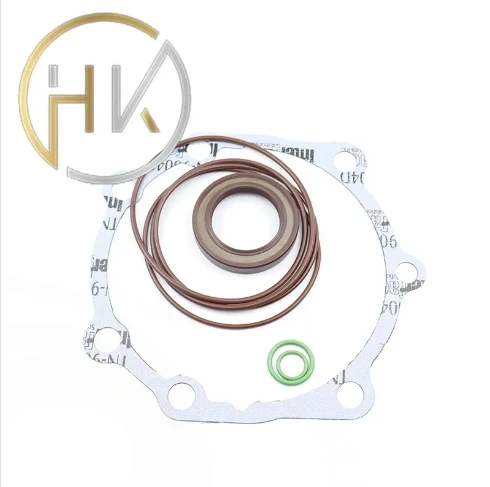Nov . 17, 2024 02:44 Back to list
motor seal
Understanding Motor Seals Their Importance and Functionality
Motor seals play a crucial role in ensuring the optimal performance and longevity of various types of motors, from automotive engines to industrial machinery. These components are essential for preventing fluid leaks, protecting internal parts from external contaminants, and maintaining proper pressure within the system. Understanding the types, materials, and functions of motor seals can aid in their proper selection, maintenance, and replacement.
Types of Motor Seals
There are several types of motor seals, each designed for specific applications and environments
1. Oil Seals Primarily used in rotating shafts, oil seals prevent lubricants from leaking out and contaminants from entering. These seals can be found in automotive engines, gearboxes, and differentials.
2. Gaskets Gaskets are flat seals that fill the space between two or more mating surfaces, ensuring that no fluids escape. They are commonly used in applications where high pressure and temperature are prevalent, such as in cylinder heads and oil pans.
3. O-Rings O-rings are circular cross-section seals that provide an effective barrier against fluids and gases. They are commonly used in hydraulic systems and appliances due to their versatility and simple design.
4. Shaft Seals These are specifically designed to seal rotating shafts, preventing the leakage of fluids and protecting the shaft from dust and other contaminants. They often employ multiple lip designs for improved leakage control.
Seal Materials
The performance of motor seals depends significantly on the materials used in their construction. Common materials include
- Rubber Popular for its flexibility, rubber seals are often used for oil seals and O-rings due to their excellent sealing capabilities and resistance to many chemicals.
motor seal

- PTFE (Polytetrafluoroethylene) Known for its outstanding chemical resistance and low friction, PTFE is commonly used in high-temperature and high-pressure applications.
- Silicone With its ability to withstand extreme temperatures, silicone seals are ideal for automotive engines that experience significant thermal fluctuations.
- Metal In applications requiring durability, metal seals may be utilized. These are often found in high-pressure systems and environments where physical wear is a concern.
Functions of Motor Seals
1. Leak Prevention The primary function of any motor seal is to prevent the leakage of fluids, whether it be oil, coolant, or fuel. A compromised seal can lead to significant loss of efficiency, increased wear, and potential engine failure.
2. Contamination Protection Seals act as a barrier against dirt, dust, and debris, which can cause damage to internal components. This is particularly important in harsh environments where equipment is exposed to varying conditions.
3. Pressure Maintenance In various systems, maintaining the correct pressure is vital for optimal performance. Motor seals help ensure that pressure levels remain stable, facilitating efficient operation.
4. Noise Reduction In engines and machinery, seals can help dampen noise produced by moving parts. This contributes not only to a quieter operation but also to improved comfort for users and passengers.
Conclusion
In conclusion, motor seals are indispensable components that contribute significantly to the reliability and efficiency of motors. By understanding the different types, materials, and functions of these seals, engineers and mechanics can make informed decisions about their selection and maintenance. Regular inspections and timely replacements of faulty seals can lead to enhanced performance, reduced downtime, and ultimately, a longer lifespan for the equipment. Whether in automotive contexts or industrial applications, investing in high-quality motor seals is essential for sustained operational excellence.
-
TCN Oil Seal Metal Ring Reinforcement for Heavy Machinery
NewsJul.25,2025
-
Rotary Lip Seal Spring-Loaded Design for High-Speed Applications
NewsJul.25,2025
-
Hydraulic Cylinder Seals Polyurethane Material for High-Impact Jobs
NewsJul.25,2025
-
High Pressure Oil Seal Polyurethane Coating Wear Resistance
NewsJul.25,2025
-
Dust Proof Seal Double Lip Design for Construction Equipment
NewsJul.25,2025
-
Hub Seal Polyurethane Wear Resistance in Agricultural Vehicles
NewsJul.25,2025
-
The Trans-formative Journey of Wheel Hub Oil Seals
NewsJun.06,2025
Products categories
















